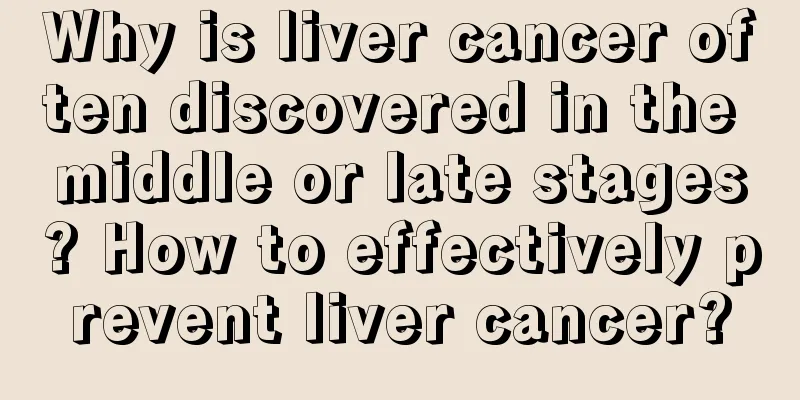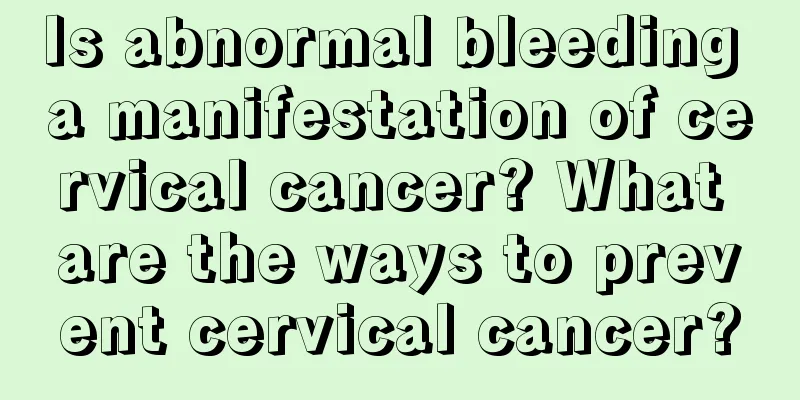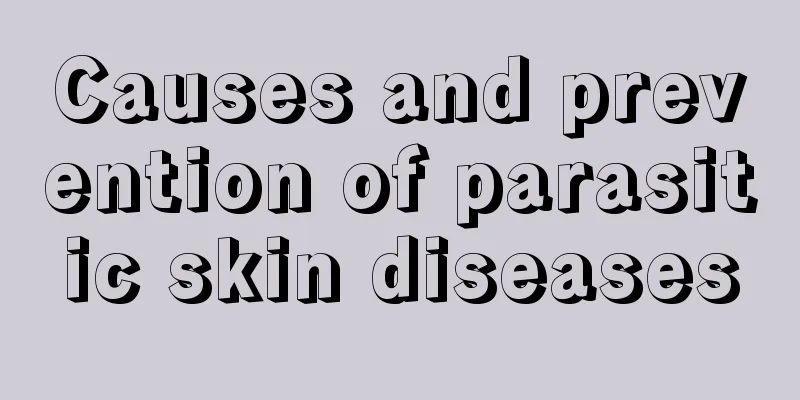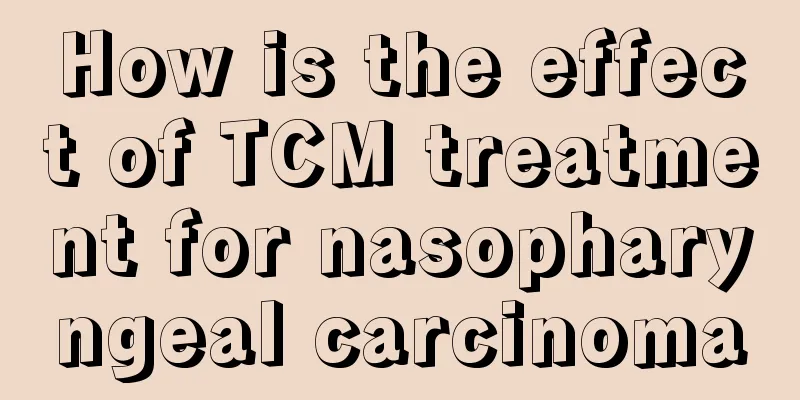Why is liver cancer often discovered in the middle or late stages? How to effectively prevent liver cancer?

|
In my country, the main causes of liver cancer are hepatitis virus infection, aflatoxin contamination of food, long-term alcoholism, and blue-green algae toxin contamination of rural drinking water. Since early diagnosis of liver cancer is very important for effective treatment and long-term survival, doctors emphasize early screening and early monitoring of liver cancer. However, often, due to some reasons, liver cancer patients are already in the middle or late stages when they are diagnosed: First, the early symptoms of liver cancer are not obvious. Patients often have no symptoms in the early stages and are often ignored. Second, many people lack health care knowledge and medical common sense. Some patients are unwilling to receive formal treatment when they find early symptoms of liver cancer, but instead use folk remedies to treat the disease, which delays the disease instead of curing it. Third, because my country is a country with a high incidence of hepatitis, more than 80% of liver cancer patients have a history of hepatitis B. Many patients have symptoms such as upper abdominal distension, abdominal pain, fatigue and loss of appetite, thinking that it is just hepatitis and do not pay attention to it. They also think it is a malignant tumor. When they are diagnosed with liver cancer later, it is often in the middle and late stages. In the past, the treatment of liver cancer mainly relied on surgery, but when diagnosed, most patients were already in the middle or late stages and often lost the opportunity for surgery or the surgical treatment was not effective. Does it mean that we have to give up treatment if we find liver cancer in the late stage? This is not the case. With the development of treatment technology, interventional therapy, targeted drug therapy, immunotherapy, minimally invasive therapy, traditional Chinese medicine therapy, biological therapy, etc. have been gradually applied to the treatment of liver cancer. For example, interventional therapy in the field of minimally invasive treatment is a relatively good method. However, there is still a lack of long-term and effective treatment methods for liver cancer. In clinical practice, interventional therapy and drugs are generally combined according to the patient's condition for comprehensive treatment. Faced with such a high incidence of diseases, we should take precautions before they happen. 1. Get vaccinated against hepatitis B regularly Children must be vaccinated from an early age, which blocks a major pathway for liver cancer 2. Develop healthy eating habits 3. Have regular physical examinations In particular, hepatitis B patients should have regular check-ups to prevent the occurrence and development of cirrhosis. 4. Pay attention to your diet The national primary prevention policy for liver cancer also points out: Do not drink ditch and pond water, drink deep well water and tap water, avoid water pollution; do not eat moldy food, stay away from the carcinogen aflatoxin; reduce the amount of alcohol consumed to avoid alcohol damage to liver health. |
>>: How to treat lung cancer? The most effective treatments for lung cancer
Recommend
What is potassium iodide
Potassium iodide, this name may sound unfamiliar,...
Where should I cupping when my throat hurts
Cupping in traditional Chinese medicine is a meth...
The dangers of mouth breathing
Many people with rhinitis will choose to breathe ...
Treatment of recurrence of cervical cancer after radiotherapy
Cervical cancer recurrence refers to the disappea...
How is liver cancer staged? Divided into these four stages
Liver cancer is clinically divided into four stag...
How to remove oil stains from leather shoes
Nowadays we have very high requirements for our c...
What should I do if my lumbar spine is curved?
The spine extends from the coccyx to the neck whe...
What to do if you have severe cervical pain? Only the right method can effectively relieve it
Nowadays, more and more people work in offices. L...
What are the preventive actions for gallbladder cancer
In recent years, the number of patients with gall...
How to treat stomach cold
Many people often suffer from upper abdominal pai...
How to pickle rainbow beans
Rainbow beans are a delicious, nutritious and ric...
What should I do if I have skin allergies? Causes and treatments of skin allergies
In daily life, there are a lot of common sense th...
The main pathway of sugar metabolism
The human body needs sugar to provide energy. Whe...
Can gastric cancer be diagnosed with CT scan?
Gastric cancer can be diagnosed with CT scans, wh...
Causes and solutions to nightmares
If you have a nightmare while sleeping, it is ver...









